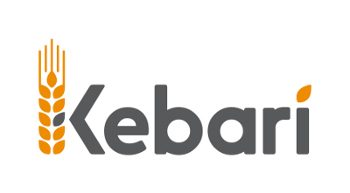The challenge
Grains to meet the demand for low gluten products
There is a large and growing global demand for food and beverage products to meet the needs of people with coeliac disease and people who are gluten intolerant.
People with these conditions need to follow a life-long gluten free diet. These diets are often expensive, high in fat and sugar, and low in fibre, minerals and vitamins, which in turn can contribute to adverse health conditions.
There is a challenge to provide consumers who require a gluten free diet with new healthy alternatives that can add diversity to their diets.
Our response
Kebari® barley with low levels of gluten
Kebari® is the trade mark for CSIRO-bred barley varieties Ohalo and Ohalo2.
Using conventional plant breeding methods, our researchers have developed Kebari® barley, a world-first barley grain that has 10,000 times less hordeins (the type of gluten found in barley) than regular barley.
We chose to work on barley as it is genetically simpler than wheat and therefore easier and quicker to achieve a barley variety with a reduced gluten content. Barley is not currently a large component of the standard Australian diet but products from barley such as malt and beer are common. Barley is a nutritious and adaptable grain suitable for breakfast cereals and other foods.

We named our barley Kebari®, in honour of an archaeological discovery at the Sea of Galilee, where evidence of the Kebaran people growing, harvesting and processing barley 23,000 years ago has been found.
The gluten content of Kebari® barley is less than five parts per million (ppm), well below the limit of 20 ppm recommended by the World Health Organization (WHO) for classification as gluten-free.
While it is 'ultra-low' in gluten, and does meet the WHO recommendation for classification as gluten-free, Kebari® barley cannot be called 'gluten-free' in Australia or New Zealand under the current Food Standards Code as it is a barley grain. Regulations in Europe will allow products containing Kebari® grain to be called gluten-free.
Kebari® barley was developed through the Coeliac Friendly Cereals project, a partnership between CSIRO and The Grains Research and Development Corporation (GRDC).
The Walter and Eliza Hall Institute of Medical Research and The Royal Melbourne Hospital were involved in the early stages of the ultra-low gluten barley project.
The results
Pionier beer: the first of many products
The first commercially-produced product made with Kebari® grain is German brewer Radeberger’s Pionier gluten-free beer, which was launched in 2016.
In Germany the production of beer is regulated by the German Beer Purity Law (Reinheitsgebot) which allows only water, barley, yeast and hops to be used in beer making. By using Kebari® grain, Radeberger have been able to release the first ever gluten-free beer marketed in Germany.
Our researchers have achieved ultra-low gluten levels in hulled barley, typically used in malt products and brewed beverages, such as beer. We have now managed to reduce the gluten levels in hulless barley, which is more typically used in foods. This will offer a range of opportunities for food with gluten levels below the acceptable limit for coeliacs, providing a greater variety of healthy foods for consumers.
CSIRO has licensed hulless Kebari® to The Healthy Grain.
Read more about the Kebari® barley: Frequently asked questions
Kebari® is a registered trade mark of CSIRO.
Related to this page
- Kebari® – Ultra Low Gluten Barley
- Cheers! Here's to gluten-free barley beer
- Pionier Glutenfrei Beer (German language)
- Plant Biotechnology Journal: Creation of the first ultra-low gluten barley for coeliac and gluten-intolerant populations
- Grains Research & Development Corporation
- Radeberger Gruppe
- Food Standards Australia New Zealand
- World Health Organization International Food Standards (Codex Alimentarius)
- Walter and Eliza Hall Institute of Medical Research
- The Royal Melbourne Hospital
